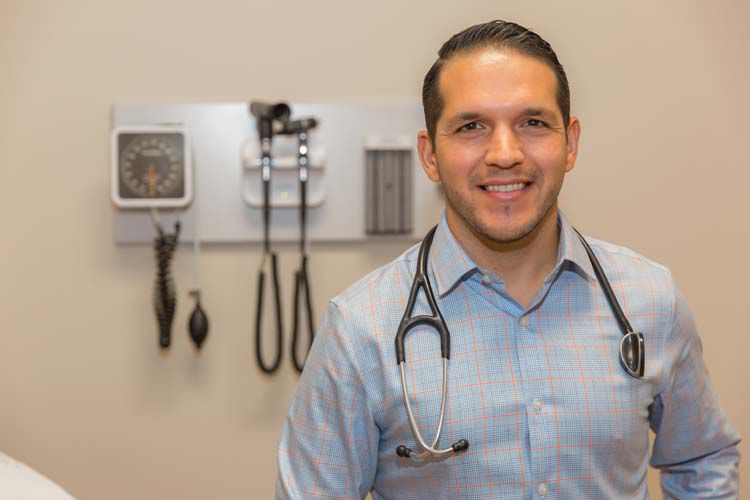
Somewhere between 40 percent and 50 percent of today’s seniors have one or more age-related digestive problems.
According to the Cleveland Clinic, those include constipation, irritable bowel syndrome, peptic ulcers, hemorrhoids, diverticulosis and gastroesophageal reflux disease (or GERD).
GERD is among the most common of these and is often referred to as heartburn, acid reflux or acid indigestion.
Dr. Alex Perez, a gastroenterologist with the Sebastian River Medical Group, first points to the bright side of GERD treatment. “Medicines nowadays, especially for things like gastritis or acid reflux, have really revolutionized how we treat those kinds of symptoms. They’re far, far more effective than older medications.”
Then Perez’s tone turns more serious. “If you’re on an acid medicine and you’re not having an optimal response or you have persistence of symptoms, that’s absolutely the time to see a specialist,” he warns.
Acid reflux is reportedly the most common upper gastrointestinal disorder in older adults. The American College of Gastroenterology estimates more than 60 million Americans experience heartburn at least once a month. Studies suggest more than 15 million older Americans experience heartburn symptoms every day.
As common as it is, it can lead to far more serious problems, even causing other life-threatening symptoms to be ignored.
At the entrance to the stomach there is a valve called the lower esophageal sphincter. Under normal circumstances, this valve closes as soon as food or liquids pass through it into the stomach. But if it doesn’t close, stomach acid can then move upwards into the esophagus.
According to the Mayo Clinic, “if left untreated, that can lead to Barrett’s esophagus,” and possibly esophageal cancer.
Barrett’s esophagus is in essence a pre-cancerous condition, Perez says. “The cells in your esophagus have changed as a way to protect themselves from the stomach acid and that change in cell type is a precursor to cancer,” he explains.
“The overall risk of developing [cancer] is much higher than in somebody who does not have that [acid reflux] condition,” says Perez, adding that increased risk requires follow-up procedures like endoscopy.
Perhaps even scarier, most people can’t distinguish the chest pain symptoms of acid reflux from those of a heart attack.
Chest pain that often occurs when stomach acid sloshes up into the esophagus – a classic acid reflux symptom – can sometimes cause people having a heart attack to reach for their Maalox, Prilosec or Nexium instead of calling 911.
In other words, says Perez, chest pain should never be ignored. If chest pains happen more frequently when you exert yourself or if you have high blood pressure or a history of cardiac problems, do not assume that pain is being caused by acid reflux.
Seek immediate medical attention.
On a more optimistic note, Perez says if your symptoms improve with your usual heartburn treatment, it’s less likely to be pain related to cardiac issues. “You wouldn’t have improvement in a heart attack with Maalox, so that does provide good information.”
That risk of masked heart attack symptoms points up the importance of having a good doctor-patient relationship, says Perez. “When a symptom is new, it’s a little bit more alarming than somebody I’ve known four or five years that has had reflux.”
Other warning bells that might trigger a visit to a primary care provider or a specialist such as Perez can include difficulty or pain in swallowing; a feeling of involuntary regurgitation or sensing that food is coming back up your esophagus after swallowing; unexplained weight loss or anemia; and visible bleeding or black stools.
Meanwhile, there are warnings that chronic usage of antacids can effect absorption of important vitamins and minerals. By extension that could increase the risk of problems like osteoporosis.
And while certain seemingly unrelated medications commonly taken by many older Americans – including some blood pressure medications – can contribute to heartburn, there may well be readily available alternatives.
“Nowadays [acid reflux] medicines are so effective at what they do that if you don’t respond to them, that’s when we start to say, Hey, maybe we need to do a little bit more investigation here,” Perez says.
Dr. Alex Perez is with the Sebastian River Medical Group. His Vero Beach office is at 920 37th Place, Suite 105. The phone number is 772-567-4825.



